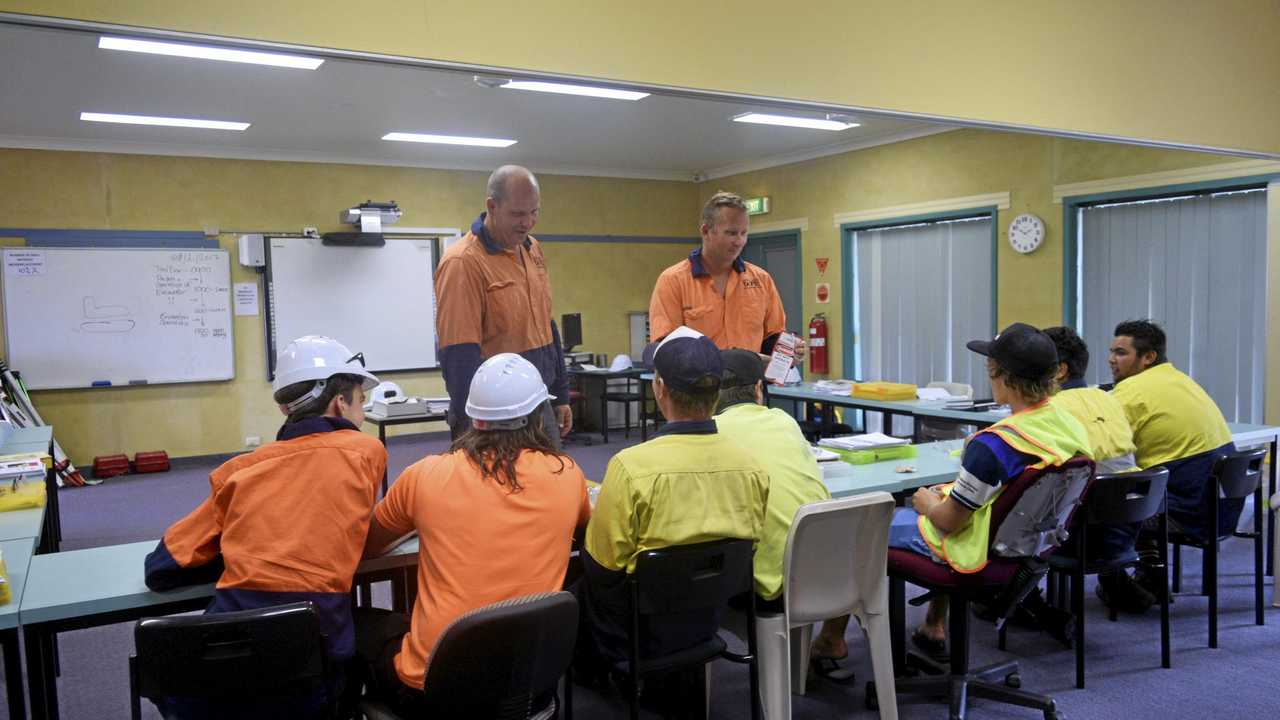How TAFE graduates are out-performing university peers
BENEFIT of being able to target specific labour shortage needs gives vocational education and training graduates a head start.

Central & North Burnett
Don't miss out on the headlines from Central & North Burnett. Followed categories will be added to My News.
WHEN it comes to higher education in the Clarence Valley, vocational education and training (VET) providers, like TAFE and CHS Training, have earned bragging rights over universities, with new research indicating VET graduates enjoy a higher employment rate and median starting wage.
In a report released by McCrindle Research and Skilling Australia Foundation, up to 67% of university graduates find work, compared to 78% of VET graduates or 92% of VET graduates who studied as part of an apprenticeship.
The report also indicated the median starting wage for VET graduates is up to $56,000, compared to a median wage of $54,000 for university graduates.
CHS Training director Darren Hayes said being able to target specific labour shortage needs was an advantage that gave vocational education and training graduates better employment prospects.
"From our point of view, we keep what we train to a local perspective, what is needed in the Clarence Valley, so we're trying to deliver what is needed for sustainable outcomes that give the best benefits to our students as well as employers," he said.
"Up to 85% of our students are walking out with sustainable employment. Sometimes even prior to the course finishing they've got work, so to me that shows the quality of training is there.
"We're able to target the industries that are really looking for employees, and that's the goal for us.
"We've worked hard so that we're very industry aligned, we've worked hard with industry engagement and that's by getting out and speaking to industries."
The McCrindle Research report also showed four out of five parents preferred their children go to university rather than undertake a vocational education pathway.
Mr Hayes said there was a misconception around the benefits of vocational education and training.
"What we're providing here and what students get at TAFE is nationally accredited training," Mr Hayes said.
"There is a framework we need to deliver, but we have the ability to find out the specifics of what is required by employers, so that possible future employees get what they need to know that isn't in the framework."
Skilling Australia chief executive Nicholas Wyman said the report would come as a shock to Aussie mums and dads.
"VET graduates on average earn at least as much as their uni graduate peers, and the prospects for getting a job are tumbling with a uni degree - but with VET, they're rising and rising," Mr Wyman said.
Originally published as How TAFE graduates are out-performing university peers






